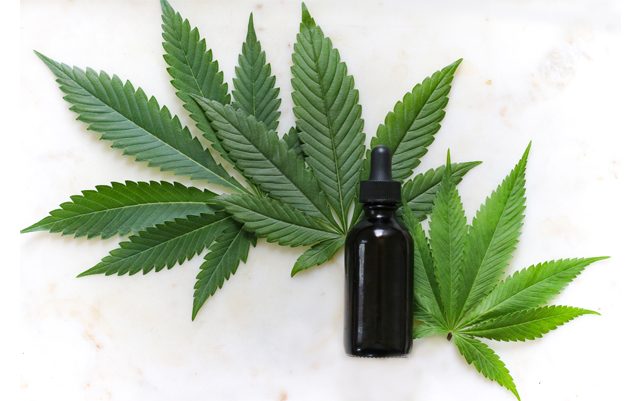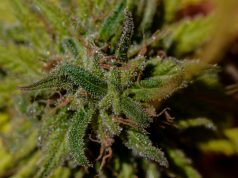It may seem like CBD popped up overnight, and from a marketing perspective this is certainly true. Ironically scientists have been aware of this chemical since the 1940’s. Despite all these years of knowing about it, there has been very little research involving CBD or any other chemicals derived from Cannabis. In most of the world this lack of research has often been due to the legality and fear that has followed this particular plant for the past century.
The 2018 Farm Bill legalized the growing of cannabis that has less than 0.3% THC, otherwise known as hemp. While this appeared to open up the market for products like CBD, it is still technically a part of the Cannabis plant which is federally illegal. Regardless of this legal gray area, many people and animals have been using CBD. While this is great for those who benefit from it, one problem is that we simply do not know what drugs should not be taken with CBD. The best CBD users can do is find what little research is available and approach it like any medication – with caution.
There are 113 cannabinoids in the Cannabis sativa plant, and the two most popular with the public are CBD and THC. The latter is responsible for the euphoria and high that comes from the plant, while the CBD has no psychoactive effects. Cannabis is very easy to grow and CBD makes up 40% of it, which is why so much has hit the market.
As of now the clinical trials that exist surrounding CBD show that it is useful in treating epilepsy, especially refractory epilepsy in children. In countries where Cannabis has been researched longer it is also used as an antispasmodic for movement disorders. And still more research is being done into whether or not it is successful in treating pain and anxiety.
Just because research hasn’t caught up with the market it doesn’t necessarily mean that CBD doesn’t have many more uses. It is forced into a quasi-dietary supplement world where the user has to basically take matters into their own hands. Luckily the evidence so far shows that no major CBD drug interactions exist, instead we have a short cautionary list for those who benefit from this cannabinoid.
CBD Metabolism
If you can recall from your school days of biology, metabolism is a life sustaining reaction that allows an organism to grow, maintain their structures, and respond to their environment. Metabolism is catalyzed and accelerated by enzymes; without enzymes the chemistry of life would not be fast enough to sustain said life. In one study a few years back it was shown that CBD inhibit an enzyme that affected the metabolism of THC.
This enzyme belongs to the Cytochrome P450 family, and you will see this enzyme mentioned often in conjunction with CBD. The CYP450 members are so common in the body that they metabolize nearly 60-75% of all our medications. Common drugs like steroids, antivirals, antiarrhythmics, benzodiazepines, anticonvulsants, beta blockers, anesthetics, and many more all use this family of enzymes. Does this mean CBD will affect the metabolism of all these medications? We simply do not know yet, however it is wise to approach CBD use with caution if you are on any prescription meds.
Other Potential Reactions
The general rule for which medications to avoid for the CYP enzymes is the grapefruit rule. Grapefruit also affects metabolism, so any medications that have this citrus fruit warning may also apply to CBD. This is a very vague rule, so your best course of action is always to consult a physician or pharmacist if you have any concerns. It is true that many in the medical field are also learning about the pros and cons of CBD, so our next course of action is to look at CBD medications in other countries.
In Canada and the UK Nabiximols (brand name Sativex) has been on the market since 2010 for treating multiple sclerosis, it is made up of CBD and THC. It shows a potential for adverse effects with blood thinners and amphetamines, otherwise it has a relatively high safety profile. Some of these adverse effects are directly related to enhancing the high or euphoria of the THC. Which is not a concern for the person or pet using only CBD.
The Final Verdict?
So do you have to worry about any CBD oil drug interactions? Clearly despite potential concerns the general consensus is that we won’t know until far more research is done. Worrying about it is likely not the necessary response. Instead we should educate ourselves as much as possible. If you intend to use CBD for you or a pet, then of course discuss it with your physician or vet. And don’t just read about CBD, look your own meds up, get to know which ones may interact with other foods and chemicals.
CBD has great potential to treat a variety of ailments. If we are careful and we heed proper research and warnings, there is every chance it will be a beneficial medicine in the long run. As long as we are intelligent consumers and avoid treating CBD like a magical panacea, soon the science will catch up. Only then will we know the specifics of what it can treat and any further potential drug interactions.
Disclaimer: This article is intended for information and entertainment purposes only and is not intended to reflect the specific views of the publication.






